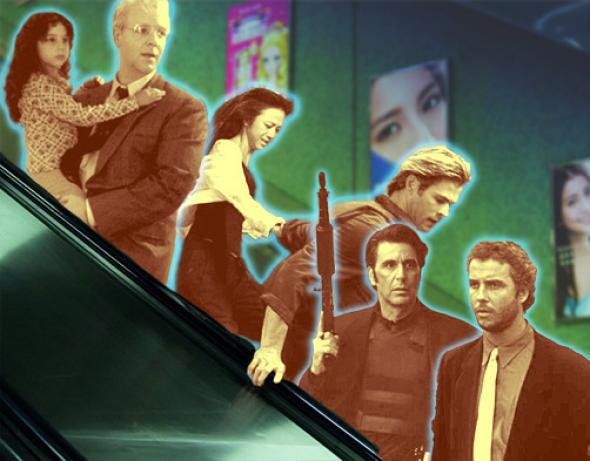
(It’s a wonder both films’ prickly leads, Russell Crowe and Will Smith, respectively, landed Oscar nominations for their fantastic but standoffish performances.) You could also file an ostensibly straitlaced film like Public Enemies under that offbeat sensibility. His two cracks at the awards-baiting biopic, The Insider and Ali, are as formally idiosyncratic as Manhunter, similarly profiling difficult men with unusual systems of honour.

Though Mann has long been contented to work within the studio system, the resulting films have always been a curious step away from the mainstream. Heat’s relative quiet and deferral of gunfire to existential brooding - at least until the inevitable, explosive heist set piece, another authorial staple - would become a hallmark of Mann’s cinema. Heat takes that attention to procedure and method to a new height, while also serving as Mann’s first proper star vehicle, putting Al Pacino and Robert DeNiro onscreen together for the first time as, respectively, a haggard detective and a big-time bank robber out for one last job. Though the latter film would be more popular, Mann’s Harris adaptation would prove more influential, its obsession with the procedural details involved in FBI profiler Will Graham’s search for serial killer The Tooth Fairy unofficially inaugurating a new kind of forensic thriller, whose lead William Petersen would go on to anchor as the star of CSI.

Adapted from Thomas Harris’s novel Red Dragon, Manhunter introduced cannibal psychiatrist Hannibal Lektor (played this time, under that slight spelling variation, by Brian Cox) years before Jonathan Demme’s The Silence of the Lambs. If Thief sets up Mann’s interest in the criminal with a code, films like Manhunter and Heat nicely establish Mann’s preoccupation with the other side of the law.


 0 kommentar(er)
0 kommentar(er)
